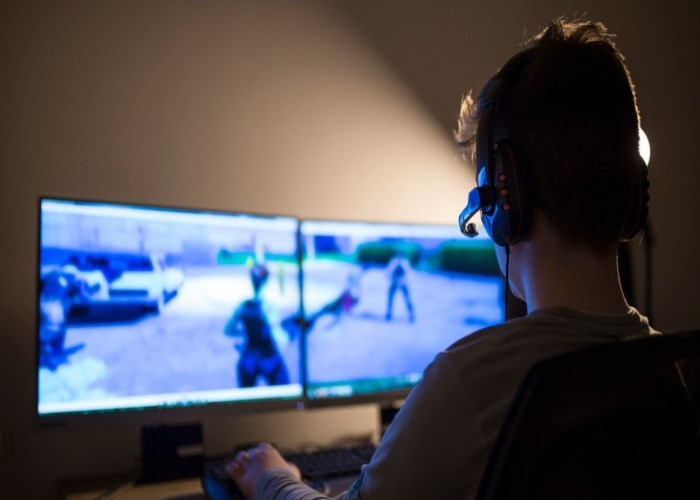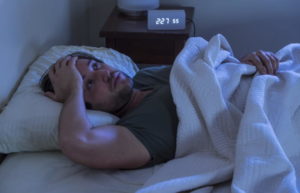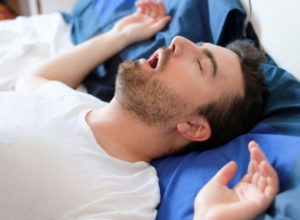Sleepwalking is sometimes used to refer to someone who lacks energy or focus when performing certain tasks. However, it is actually an existing sleeping disorder that has considerable consequences when left untreated. Have you ever had the experience of sleeping in your bed and then waking up in another part of your home, especially if you had no recollection of getting out of bed at night? It’s important to know what causes sleepwalking to understand its cause and properly address it.
A Closer Look Into Sleepwalking
There is a debate as to whether sleepwalking can be categorized as a sleep disorder. The confusion stems from the fact that this behavior is often exhibited alongside other sleep issues like obstructive sleep apnea and restless leg syndrome.
Individuals who have sleepwalking episodes are known to show abnormal behavior. This act straddles between the state of wakefulness and sleep. There are two phases of sleep that every human goes through: the REM and non-REM (NREM) phase of the sleep cycle. The latter is when you go into a deep sleep phase.
Sleepwalking takes place during the deep sleep or NREM phase. Each episode can last for between a few seconds and half an hour. Some might return to bed and complete their sleep while others will stay out of bed. It is also worth noting that some do not necessarily “walk” during sleep; they could perform other actions such as talking in their sleep.
What Causes Sleepwalking?
Sleepwalking is a condition that is more common in children than adults. Many of those who experience sleepwalking tend to outgrow it once they enter the teenage years. However, this isn’t guaranteed. Some will continue to sleepwalk even in their adulthood years and others even start exhibiting this behavior in their adult life.
Therefore, it is a puzzle to many what causes sleepwalking. Understanding the cause behind sleepwalking is a great way to prevent it and address the problem.
Sleep researchers have studied this phenomenon for years. They have looked into various factors that can affect the brain and cause sleepwalking disorders. These are some of the factors that can directly impact one’s risk for developing this sleep disorder.
1. Lack of Sleep
As ironic as it may seem, sleepwalking can be caused by sleep deprivation. If you don’t get the recommended number of hours of sleep per night, then you are at higher risk of developing this sleep disorder.
This conclusion is based on research done on individuals who have had a history of sleepwalking. According to the conclusion of the aforementioned research, individuals who are sleep-deprived are more likely to experience sleepwalking episodes than those that have adequate sleep.
2. Stress
Stress is another factor that can contribute to sleepwalking. It is directly linked to the reason stated above since the more stressed you are, the more you are likely to get interrupted in your sleep.
An individual who experiences a stressful event during their waking hours will be more likely to have an episode during the night. It triggers a part of the brain that can cause you to walk in your sleep.
It is important to stress the need to reduce your stress levels on a daily basis. You can adopt a few stress-reduction techniques such as the following:
- Reduce caffeine intake
- Exercise on a regular basis
- Try yoga and meditation
- Perform breathing exercises
- Practice mindfulness
3. Brain Injury
According to the Sleep Foundation, a traumatic injury to the brain can also be a trigger of sleepwalking. Encephalitis – when there is swelling in the brain – is one such example of a factor that can trigger sleepwalking episodes in an individual.
It may be essential to undergo surgery or other forms of medical treatment to address the brain injury or other forms of trauma to the brain.
4. Sleeping Disorders
Other sleeping disorders can also cause individuals to sleepwalk. Obstructive sleep apnea is highlighted by experts as one of those contributing factors. When you suffer from sleep apnea, it can affect the natural breathing patterns during sleep. This can cause more than just snoring; it can also affect other key functions of your body such as blood pressure and energy levels.
This study has concluded that individuals who have obstructive sleep apnea are more likely to sleepwalk than those who do not suffer from this sleeping disorder.
However, it’s not just obstructive sleep apnea that you must be concerned about. Individuals who suffer from restless leg syndrome (RLS) are at risk too. This is a type of sleep disorder that causes the urge to move your legs when lying down.
5. Medications
Taking certain medications is also linked to sleepwalking episodes. This one is a bit tricky to pin down though. The majority of the medications that are linked to sleepwalking are those that are clinically given to patients who suffer from various conditions such as depression, anxiety, obsessive-compulsive disorder, and alcoholism.
Therefore, it is difficult to determine if the medications are causing the sleepwalking episodes or vice versa. There are more studies being done in order to determine the causality behind it.
Can it Be Treated?
Yes, there is a treatment for sleepwalking, and it will depend on a number of factors. The age of the patient is one. Other factors that are also looked into by the doctor is the frequency of the sleepwalking episodes and the level of disruptions per episode.
In most cases though, there is no treatment necessary. Most children who exhibit this behavior tend to overcome them as they grow older. It typically resolves itself on its own and won’t require any specialized therapy. But for more severe cases, most doctors would suggest treating the underlying causes. For example, if it is due to stress, then adopting stress-reduction techniques would be a good first step in the treatment plan.
An improved sleep routine is also beneficial in eliminating sleepwalking. It is important to maintain a regular sleep schedule in order to make it easier to get the minimum number of hours per day so you can avoid sleep deprivation. The more restful your sleep is every night, the less likely you will be to walk during your sleep.


























